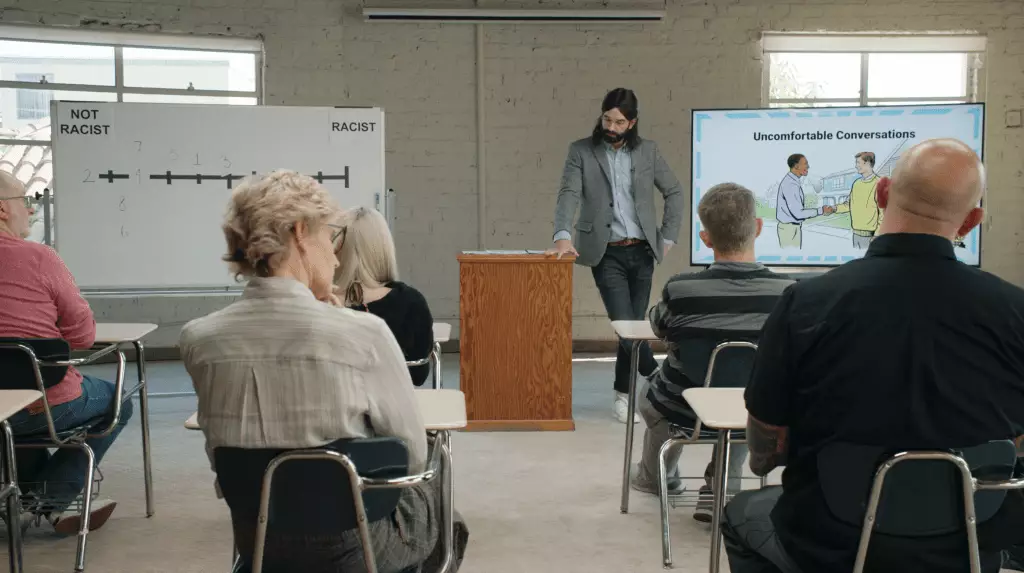The internal dynamics of the film industry often reflect broader societal shifts and audience tastes. Recently, the domestic box office witnessed an intriguing turn, with the emergence of conservative and faith-based films landing prominently in the rankings. A notable weekend saw the debut of *Am I Racist?*, a documentary with roots in the politically charged media landscape, alongside *God’s Not Dead: In God We Trust*. This analysis delves into the phenomena surrounding these films, examining audience demographics, marketing strategies, and the implications of their success.
In an era where mainstream cinema often leans toward progressive storytelling, the success of films like *Am I Racist?* and *God’s Not Dead* signifies a counter-narrative gaining traction. *Am I Racist?*, produced by The Daily Wire, made a stunning entrance at the box office, grossing $4.75 million on just over 1,500 screens. What sets this documentary apart is both its controversial subject matter and the engaging persona of its lead, Matt Walsh, who undertakes a mock journey through diversity, equity, and inclusion (DEI) principles. The film critiques a growing concern among conservative circles — the perceived overreach of DEI policies in various aspects of American life.
The film’s impressive audience score of 99% on Rotten Tomatoes, despite the absence of critical rankings, suggests a strong appeal to its target demographic. Predominantly attracting a male audience (56%), with a considerable percentage under the age of 35, *Am I Racist?* reflects a demographic that feels underrepresented in prevailing cultural narratives. This demographic phenomenon suggests an engaged audience eager to consume content that aligns with their perceived ideological stance.
In juxtaposition, *God’s Not Dead: In God We Trust*, with a more modest opening of $1.46 million, continues the franchise’s mission to blend faith-based narratives with contemporary socio-political themes. Part of the increasingly recognizable *God’s Not Dead* franchise, this latest installment wrestles with the intersection of religion and politics, catering primarily to an audience that values faith embedded in public discourse. The film mirrors a larger trend that sees traditional values being articulated through cinematic storytelling, emphasizing the battle between secularism and religious advocacy.
While both films appeal to similar conservative values, they vary significantly in execution and narrative approach. The documentary format of *Am I Racist?* provides a platform for discourse, inviting viewers to critically analyze the contentious themes of anti-racism, while *God’s Not Dead* opts for a dramatic retelling of faith in action, attempting to draw emotional investment from its audience.
Not to be overlooked is the emergence of *DAN DA DAN: First Encounter*, which grossed over $1 million with only limited screenings, making its entry into the box office notable. As a showcase for the most acclaimed new anime series of the fall, *DAN DA DAN* represents a growing appetite for diverse storytelling formats in cinematic spaces. The film’s high audience rating of 99% illustrates an innovative trend toward merging familiar franchises with the cinema experience, paving the way for similar anime releases to become mainstream.
On the indie film front, *My Old Ass*, which premiered to an impressive opening in just seven theaters, has captivated audiences through strong word-of-mouth and critical acclaim. With a robust 92% rating from critics, the film demonstrates a potential for longevity and broader appeal as it expands its reach. This success indicates that even in a competitive landscape, independent storytelling rooted in authentic character experiences can carve out a profitable niche.
Concluding thoughts on the evolving film landscape
The recent successes of conservative and faith-based films at the box office signal a distinct shift in viewer preferences and collective ideologies. The convergence of political content, demographics, and innovative marketing strategies showcases how the film industry is diversifying. As audiences gravitate towards films that resonate with their values, it becomes increasingly essential for filmmakers to recognize these shifts while providing narratives that reflect a wider spectrum of experiences. The ability to balance ideological storytelling with engaging formats will be critical in defining the future landscape of cinema. The recent box office trends suggest that a significant segment of the American populace is eager for content that aligns with their beliefs, paving the way for a more inclusive cinematic environment where diverse narratives can thrive.

